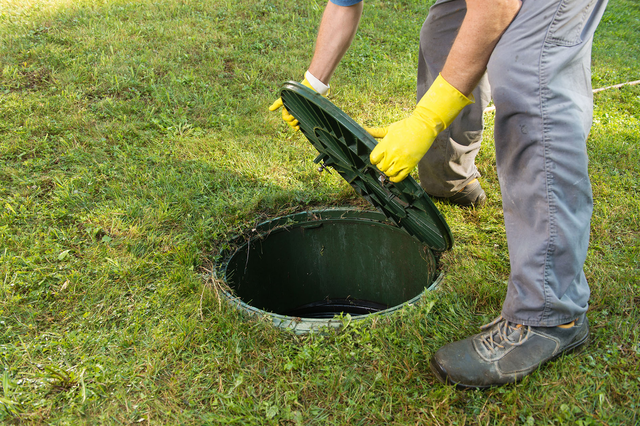Funding available for Lampasas River watershed area septic systems
Reducing system failures can increase regional water quality
The Lampasas River Watershed Partnership is coordinating a septic system repair and replacement program for residents in the Lampasas River watershed to help improve and protect water quality.

“Funding is now available to homeowners to repair or replace septic systems within the watershed, as part of implementation of the Lampasas River Watershed Protection Plan,” said Lisa Prcin, Texas A&M AgriLife Research associate, Temple. The Lampasas River watershed encompasses parts of Mills, Hamilton, Lampasas, Coryell, Burnet, Bell and Williamson counties.
Federal grant funds are available to offset the costs of repairing or replacing approximately 15 septic systems within the watershed. Up to 100% of funding, with a maximum of $8,000, is available to residents to repair or replace failing systems.
More information about this grant program can be found at http://www.lampasasriver.org/ossf, including the general eligibility, needs assessment criteria for participation and an interactive map of the watershed boundaries. The application can also be downloaded from the website.
For questions regarding the grant program, contact Prcin at 254-774-6008 or by email at lprcin@brc.tamus.edu. For information about septic systems in Texas, visit http://ossf.tamu.edu/.
Lampasas River Watershed Protection Plan
The Lampasas River Watershed Protection Plan was accepted in 2013 and efforts have been underway to secure technical and financial assistance to implement portions of the plan and improve water quality across the watershed, Prcin said. This effort includes helping homeowners repair and/or update their systems.
Home septic systems, also known as on-site sewage facilities, OSSF, are used to treat wastewater before it is dispersed on the property. Systems not functioning properly can contaminate waterways with bacteria and other pollutants that pose a threat to human health.
“During the creation of the plan, stakeholders identified failing septic systems as a major contributor of bacteria in the watershed,” Prcin said. “A goal of the Lampasas River Watershed Partnership was to reduce the number of failing septic systems.”
Funding and support for the Lampasas Watershed Protection Plan is provided through Clean Water Act nonpoint source grants from the Texas Commission on Environmental Quality, the Texas State Soil and Water Conservation board and the U.S. Environmental Protection Agency.
The protection plan was developed and implemented by the Lampasas River Watershed Partnership, a collaborative effort by local stakeholders, AgriLife Research, and Texas State Soil and Water Conservation Board and Texas Commission on Environmental Quality to address water quality concerns within the Lampasas River watershed.


